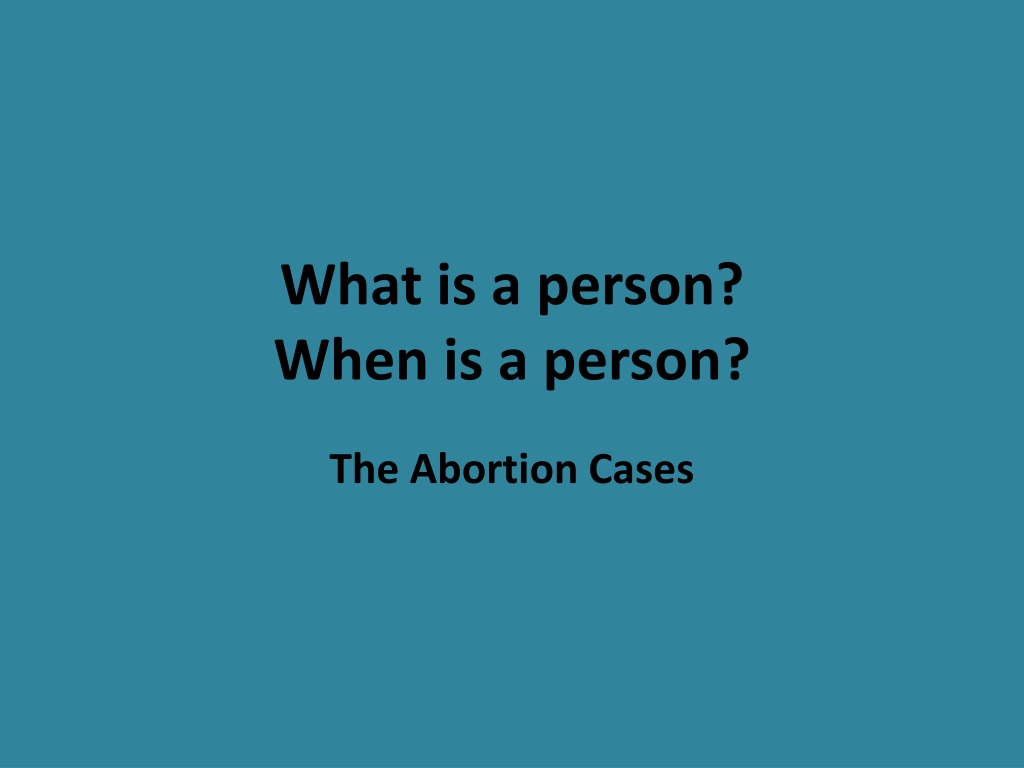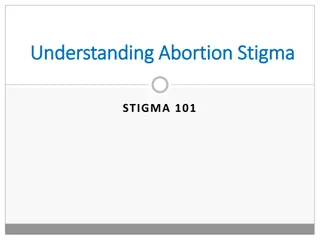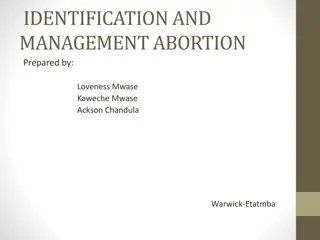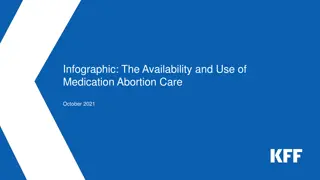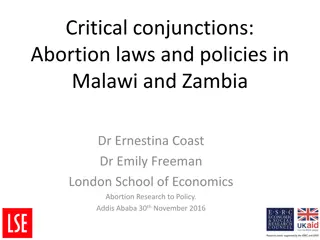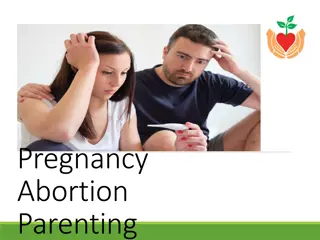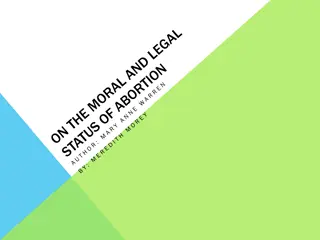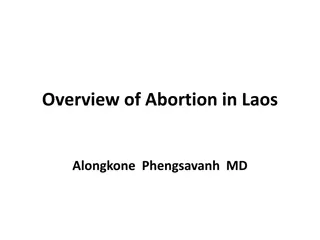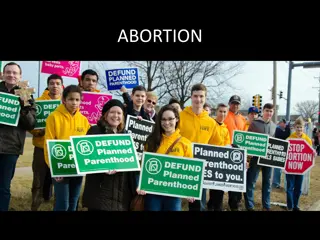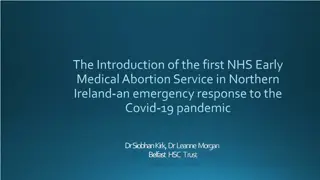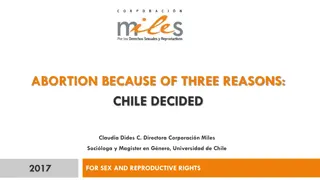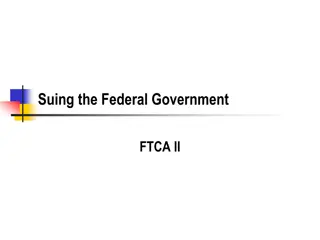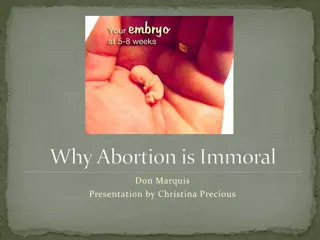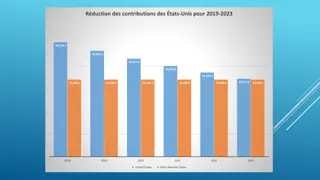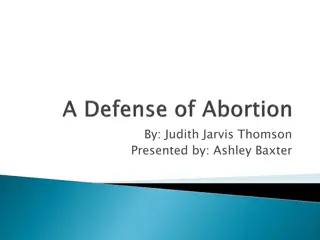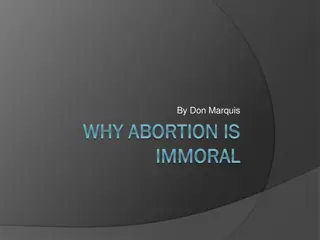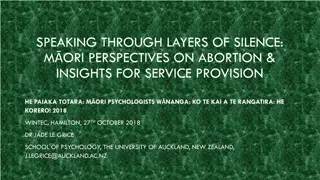Exploring Abortion Cases and Legal Perspectives in the United States
Delve into the intricate legal frameworks and significant cases surrounding the topic of abortion in the United States. From foundational cases like Griswold v. Connecticut to the landmark Roe v. Wade decision, this content navigates the evolution of laws, rights, and debates shaping the discourse on abortion rights and privacy.
Download Presentation

Please find below an Image/Link to download the presentation.
The content on the website is provided AS IS for your information and personal use only. It may not be sold, licensed, or shared on other websites without obtaining consent from the author. Download presentation by click this link. If you encounter any issues during the download, it is possible that the publisher has removed the file from their server.
E N D
Presentation Transcript
What is a person? When is a person? The Abortion Cases
Two types of laws Constitutive Tempting analogy to chess Regulative The function of the Supreme Court Range of issues on the question of abortion for the public
Enovid approved as contraceptive in 1960; in use for menstrual pains, 1958
First two cases as basis Griswold v Connecticut (1965) [Cf Poe v Ullman (1961)\] Several lines of reasoning Douglas relation of husband and wife *(and doctor) is private What is private? Idea of the penumbra Importance of the sacred (?) p.5
Goldberg It is a right What is a right? A trump ? Harlan: It is due process Governmental interference? Black in dissent Who is to decide what rights really are Rochin v California Stewart: keep philosophy out -dissent
Eisenstein v Baird (1971) extends this to unmarried persons What happens to the sanctity of marriage argument? Roe v Wade (1971-3) Roe had sued on 14thamendment and privacy penumbra grounds Blackmun Laws are recent Prohibition on what grounds? Right to privacy (even though not mentioned -59)
Wade says state has right to protect prenatal life Blackmun: What is a person (69) Makes no distinction of person and human being But even supposing the fetus is a person JJ. Thompson and the violinist What is life Precedents? Leads to three stages theory
Basis of Blackmuns decision: No one thinks that abortion is a BENEFIT of pregnancy. That is no one has intercourse in order to have an abortion: Hence for those contemplating an abortion there is suffering. Medical advances have resolved a number of issues. (Note problems resting a decision on technology)
Webster v Reproductive Health Services (1989) Court is split with multiple opinions Missouri Legislature had ruled that Life of a human being begins at conception Unborn children have protectable interests State employees were forbidden to perform abortions State laws should consider viability Roe is upheld Scalia says it should be overturned Violent and bitter dissent from Blackmun
Justice Rehnquist Justice Scalia Justice O Connor
Planned Parenthood v Casey (1992) Divided Court (5-4) Roe is framed in terms of viability Parameters Before viability; right to choose After: state can interfere O Connor wants to avoid the person debate Liberty argument Not moral code
What is this liberty? Liberty of the woman Rights of the state Informed consent Blackmun: ok but strict scrutiny [from footnote 4 to US v Carolene Products (1938), requires: compelling governmental interest narrowly tailored least restrictive means] Scalia: this is a political question QUESTION: relation of liberty to equality Gideon v Wainwright
Other related cases Homosexualty: Bowers v Hardwick (1986): sex between consenting men is not legal Lawrence v Texas (2003): intimate sexual contact is a liberty protected by substantive due process (there is not compelling state interest): (Kennedy reviewed historical evidence) Abortion related: Partial birth (late term) Stenberg v Carhart (2000): depends on method used: dilation and extraction is not allowed. (question of fetal pain) Congress passes a law forbidding partial birth abortions (2003) Gonzalez v Carhart (2006) upholds Congressional ban. Procedure is not related to woman s health. State can enforce substantive concerns for the fetus at all times providing they do not produce an undue burden on the woman.
Some considerations Being human and being a person What in the society in which we live makes an unwanted child a problematic matter? What is free choice in the world in which we live?
